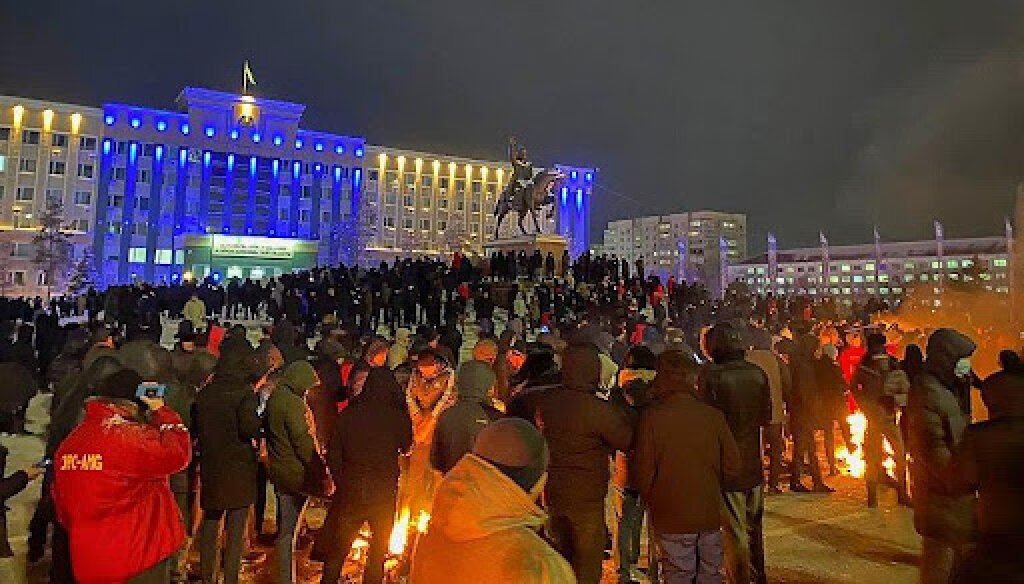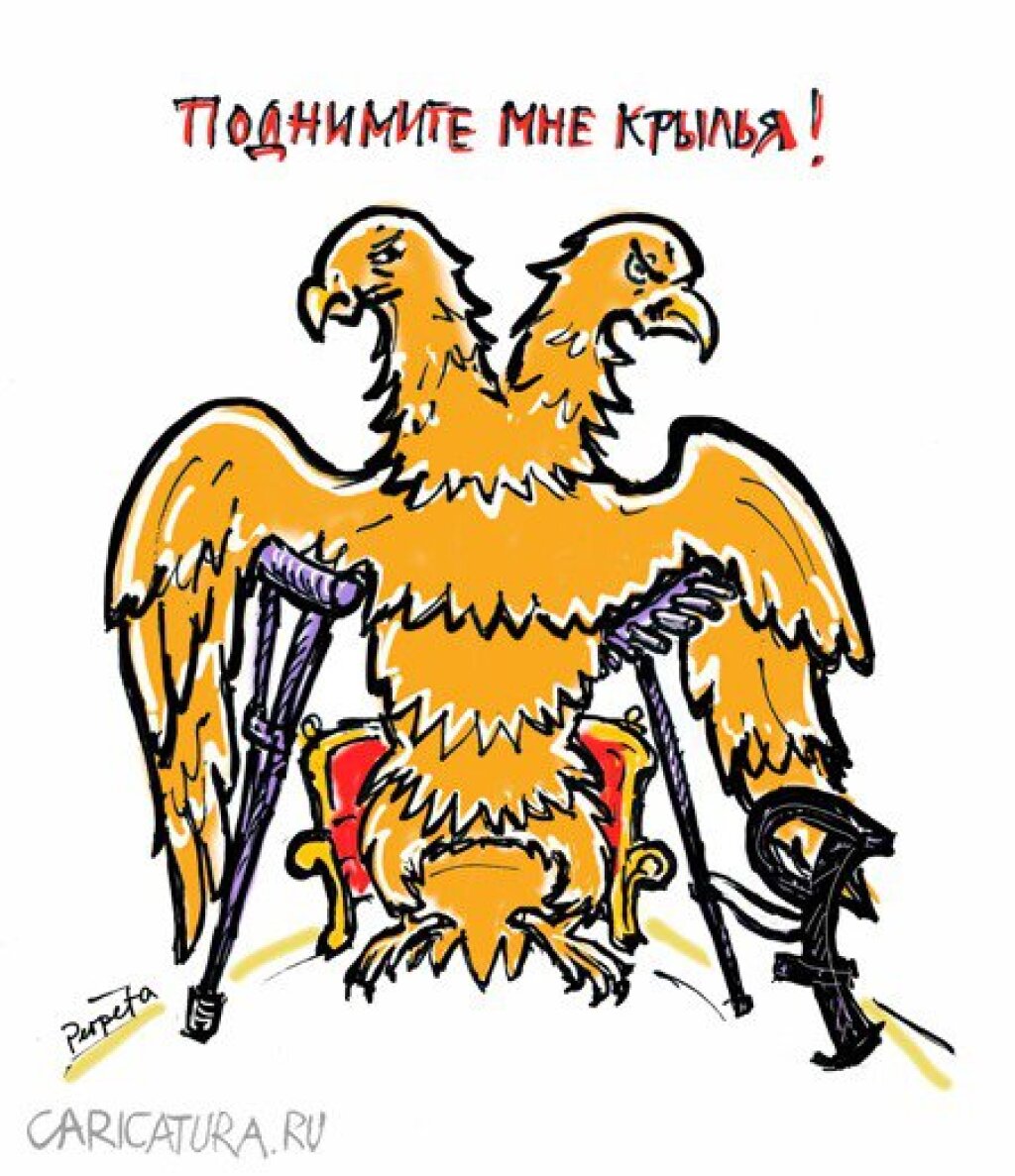The Jordan Center stands with all the people of Ukraine, Russia, and the rest of the world who oppose the Russian invasion of Ukraine. See our statement here.
Paul Chaney is is co-director of Wales Institute of Social and Economic Research, Data and Methods (WISERD), Cardiff University, Wales. This post derives from his 2022 article in Central Asian Survey.
Above: Protesters gather in the central square of Aktobe, Kazakhstan on 4 January 2022. Source
The United Nations has long warned of the global trend of shrinking civil space, defined in a 2017 document as a progressive “dismantling” of rights to “freedom of expression, association and peaceful assembly,” with “increasingly harsh repressive measures being used to silence critical voices and to control access to information.” A key emerging question is, How does this phenomenon relate to the Commonwealth of Independent States (CIS)? This post describes the first pan-regional analysis of shrinking civil space in the CIS. The study analyzes the perspectives of civil society organizations on the contemporary situation of human rights defenders (HRD) in the CIS using discourse analysis of their submissions to the United Nations’ Universal Periodic Review (UPR). The findings are significant, confirming a shrinking civil space in the CIS as HRDs face a raft of human rights pathologies, including threats, violence, and murder. Their work is curtailed by increasing state restrictions on freedom of association and expression. The analysis further reveals how women HRDs are particularly subject to discrimination and gender-based oppression. Their malaise is compounded by impunity for offenders, corruption, and government inaction following earlier UPR recommendations.
In recent years, commitments to democracy and human rights have waxed and waned in the CIS. In general, state repression of HRDs has been an integral part of the rise of authoritarian governing practices. In part, this situation is driven by Russian foreign policy premised on common values and a distrust of “foreign” cultures and values. The result are Central Asian states using authoritarian practices to reinforce control over their respective societies, frequently emulating Russia’s example. Civil society organizations’ (CSOs) submissions to the UPR is an invaluable data source because it is based on standpoint theory and the situated knowledge of NGOs and campaigners, many with lived experience of the challenges facing HRDs.
According to the human rights defenders who submitted to the UPR, flawed and repressive legislation is the first-ranked rights pathology, confirming a deteriorating situation across the region. One informant complained that the new laws broadened the definition of “political activity” to “effectively encompass any civil activity affecting public opinion on any issue that could be considered as political in nature.” Government failure to address past UPR recommendations on the rights of activists over the last five years constitute Article 2 breaches of the ICCPR and are the second-ranked violation. As one CSO noted, “Grave rights abuses such as torture, politically motivated imprisonment, and forced labor in the cotton fields remain widespread. Accordingly, many of the most critical recommendations made by states during the previous UPR cycles remain unfulfilled or not implemented in practice.”
Authorities' maladministration of justice, including false arrest and arbitrary detention or imprisonment, was the third-ranked rights breach in the UPR corpus. For example, one Uzbek CSO complained that “human rights defenders,” and indeed “all critical voices,” continue to face arbitrary arrests.” Evidently, in March 2017, one particular activist was “again placed into forced psychiatric treatment, where she was kept for 23 days before being released.” Threats, violence, torture, and murder were the fourth-ranked pathology facing HRDs. One CSO highlighted how, following a local newspaper’s August 2018 publication of a photograph of four Kyrgyz LGBT activists participating in a pride parade in Europe, the activists received anonymous death threats and were subject to online hate speech.
What does the UPR dataset tell us about the causes of contemporary human rights violations across the CIS? In brief, they underline the salience of Weissbrodt’s typology of causes, namely: (1) government behavior and structure; (2) armed conflict; (3) economic factors; and (4) psychological factors. This study’s discourse analysis shows rights violations to be deeply embedded in contemporary governance practices with causes that are cultural, systemic, institutional and political.
In the early 2010s, there was hope across the CIS region that HRDs’ and NGOs’ attempts to promote states’ UN treaty obligations would have a transformative effect, moving countries further toward liberal, democratic, rights-based governance. My study shows, however, that such hopes are increasingly stymied by low public awareness and understanding of NGOs, conservative public attitudes, suspicion of “foreign’ rights-based agendas, and the endurance of discriminatory practices and beliefs. These problems are coupled with the self-serving authoritarian tendencies of ruling elites across the CIS.
The situation of human rights defenders in the region can also be understood with reference to the work of James Hollyer and Peter Rosendorf, who have investigated the question of why authoritarian regimes sign human rights declarations. According to these scholars, when governments sign UN treaties like the ICCPR, only to “willfully violate their provisions,” they send a “costly signal” to domestic opposition groups, including HRDs and civil society organizations. The message is that they will continue to employ repressive tactics to remain in power. Disturbingly, “authoritarian governments that torture heavily are more likely to sign” anti-torture agreements than “those that torture less.” In light of this tendency, the breadth and seriousness of the rights pathologies revealed in my study leave little hope of significant improvements being recorded in the next round of the UPR.



